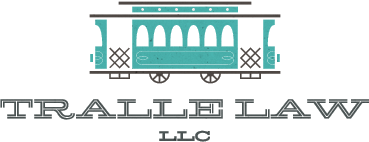
Estate Planning
Estate planning is important for people at all ages, with all income levels. An estate is the property that you own. It may include your house, retirement accounts, life insurance, bank accounts, vehicles, and personal property. By planning your estate, you help ensure your wishes will be respected.
Estate planning is not only important for distributing assets, but also for determining who will care for your children. If you have children under the age of 18, it is important that your friends and family know who you want taking care of your children. This can be laid out in an estate plan.
An estate plan generally consists of three documents for each partner: will, health care directive (or living will), and a power of attorney. Some more complex estate plans may also include a trust, either a revocable or irrevocable trust. It is important to talk with your attorney which documents are needed for your estate. Claire can help you decide what kind of estate plan is best for you. There are many different parts to take into consideration, and Claire can help navigate the options.
Below are the various documents Claire offers as part of your estate plan:
Power of Attorney A Power of Attorney allows you to give someone else the power to take care of your finances and property. The Principal is the person who creates the Power of Attorney and gives the decision-making powers to their Attorney-In-Fact. The Attorney-In-Fact does not have to be an actual attorney. The Attorney-In-Fact need only be someone who is 18 years of age or older. The Power of Attorney can be helpful in many situations: adult children studying abroad, unmarried adults, and the elderly, to name a few. There are many reasons to have a Power of Attorney, the most frequent reason being to designate someone to make decisions for you if for some reason you are unable to make them for yourself. Power of Attorneys can become effective either immediately upon signing the document, or only upon the incompetency of the Principal. The Principal can revoke the Power of Attorney at any time.
Health Care Directive (Living Will) A Health Care Directive (sometimes called a Living Will) allows you to give someone else the power to make decisions on your behalf related to your medical care. The Principal is the person who creates Health Care Directive and gives the decision making powers to their Agent. Generally, the Agent may only act when Principal cannot make their own decision. The Health Care Directive can be very specific in end-of-life decisions, or can be left more general and at the discretion of the Agent. Choosing an Agent, or Agents, to act on your behalf can be a very difficult decision and there are many factors to take into consideration.
Basic Will A Will is a legal document that transfers your property after you die. The Will names a Personal Representative to be the person to distribute your property. If you have minor children, the Will can also nominate who will take care of your children (Guardians and/or Conservators) if you or your partner cannot. Not all of your property will be distributed by your Will – only your probate assets will be distributed by your Will. Please see the Probate/Estate Administration section for a more in-depth discussion of probate and non-probate assets. The decisions you need to make in your Will can be very difficult: both emotionally and logistically. It is important to talk with an attorney about what your options are. Claire can help navigate the various options.
Disclaimer Family Trust Will A Disclaimer Will does everything the Basic Will (see above) does– it will distribute your property, name a Personal Representative, and if you have minor children, can name Guardians and Conservators – and then some. The Disclaimer Will is designed to manage larger estates. It offers more flexibility with tax planning and distributing assets to the beneficiaries in different ways. The Disclaimer Will is more complicated than the Basic Will, and not every person will need this complexity. However, the Disclaimer Will can be very beneficial to people who have remarried and have children from a previous relationship.
Revocable Trust A Trust is a document that distributes property. The Settlor is the person who creates the Trust for the benefit of the beneficiaries. The Trustee is the person who administers the Trust. In a Revocable Trust, or a Trust that can be rescinded, the Settlor is the same person as the Trustee. The Settlor maintains control over the Trust so long as the Settlor can, or chooses too. A Trust can be set up for children, and distributed at various ages, or for various needs. A Trust can also be set up instead of, or in addition to a Will. Trusts are administrated privately, instead of through the court system called Probate (See the Probate/Estate Administration section), which is public.
Irrevocable Trust An Irrevocable Trust is the same as the Revocable Trust except the Settlor does not maintain control over the Trust. This also means that the Settlor and the Trustee must be two separate people. By the Settlor not keeping control over the Trust, the property in the Trust is not included in the Settlor’s estate for tax purposes. The Irrevocable Trust has the same privacy advantages as the Revocable Trust. The administration of this Trust can be more complicated than the Revocable Trust. It is important to consult an attorney when determining what type of Trust would most benefit you.
Estate planning is not only important for distributing assets, but also for determining who will care for your children. If you have children under the age of 18, it is important that your friends and family know who you want taking care of your children. This can be laid out in an estate plan.
An estate plan generally consists of three documents for each partner: will, health care directive (or living will), and a power of attorney. Some more complex estate plans may also include a trust, either a revocable or irrevocable trust. It is important to talk with your attorney which documents are needed for your estate. Claire can help you decide what kind of estate plan is best for you. There are many different parts to take into consideration, and Claire can help navigate the options.
Below are the various documents Claire offers as part of your estate plan:
Power of Attorney A Power of Attorney allows you to give someone else the power to take care of your finances and property. The Principal is the person who creates the Power of Attorney and gives the decision-making powers to their Attorney-In-Fact. The Attorney-In-Fact does not have to be an actual attorney. The Attorney-In-Fact need only be someone who is 18 years of age or older. The Power of Attorney can be helpful in many situations: adult children studying abroad, unmarried adults, and the elderly, to name a few. There are many reasons to have a Power of Attorney, the most frequent reason being to designate someone to make decisions for you if for some reason you are unable to make them for yourself. Power of Attorneys can become effective either immediately upon signing the document, or only upon the incompetency of the Principal. The Principal can revoke the Power of Attorney at any time.
Health Care Directive (Living Will) A Health Care Directive (sometimes called a Living Will) allows you to give someone else the power to make decisions on your behalf related to your medical care. The Principal is the person who creates Health Care Directive and gives the decision making powers to their Agent. Generally, the Agent may only act when Principal cannot make their own decision. The Health Care Directive can be very specific in end-of-life decisions, or can be left more general and at the discretion of the Agent. Choosing an Agent, or Agents, to act on your behalf can be a very difficult decision and there are many factors to take into consideration.
Basic Will A Will is a legal document that transfers your property after you die. The Will names a Personal Representative to be the person to distribute your property. If you have minor children, the Will can also nominate who will take care of your children (Guardians and/or Conservators) if you or your partner cannot. Not all of your property will be distributed by your Will – only your probate assets will be distributed by your Will. Please see the Probate/Estate Administration section for a more in-depth discussion of probate and non-probate assets. The decisions you need to make in your Will can be very difficult: both emotionally and logistically. It is important to talk with an attorney about what your options are. Claire can help navigate the various options.
Disclaimer Family Trust Will A Disclaimer Will does everything the Basic Will (see above) does– it will distribute your property, name a Personal Representative, and if you have minor children, can name Guardians and Conservators – and then some. The Disclaimer Will is designed to manage larger estates. It offers more flexibility with tax planning and distributing assets to the beneficiaries in different ways. The Disclaimer Will is more complicated than the Basic Will, and not every person will need this complexity. However, the Disclaimer Will can be very beneficial to people who have remarried and have children from a previous relationship.
Revocable Trust A Trust is a document that distributes property. The Settlor is the person who creates the Trust for the benefit of the beneficiaries. The Trustee is the person who administers the Trust. In a Revocable Trust, or a Trust that can be rescinded, the Settlor is the same person as the Trustee. The Settlor maintains control over the Trust so long as the Settlor can, or chooses too. A Trust can be set up for children, and distributed at various ages, or for various needs. A Trust can also be set up instead of, or in addition to a Will. Trusts are administrated privately, instead of through the court system called Probate (See the Probate/Estate Administration section), which is public.
Irrevocable Trust An Irrevocable Trust is the same as the Revocable Trust except the Settlor does not maintain control over the Trust. This also means that the Settlor and the Trustee must be two separate people. By the Settlor not keeping control over the Trust, the property in the Trust is not included in the Settlor’s estate for tax purposes. The Irrevocable Trust has the same privacy advantages as the Revocable Trust. The administration of this Trust can be more complicated than the Revocable Trust. It is important to consult an attorney when determining what type of Trust would most benefit you.




